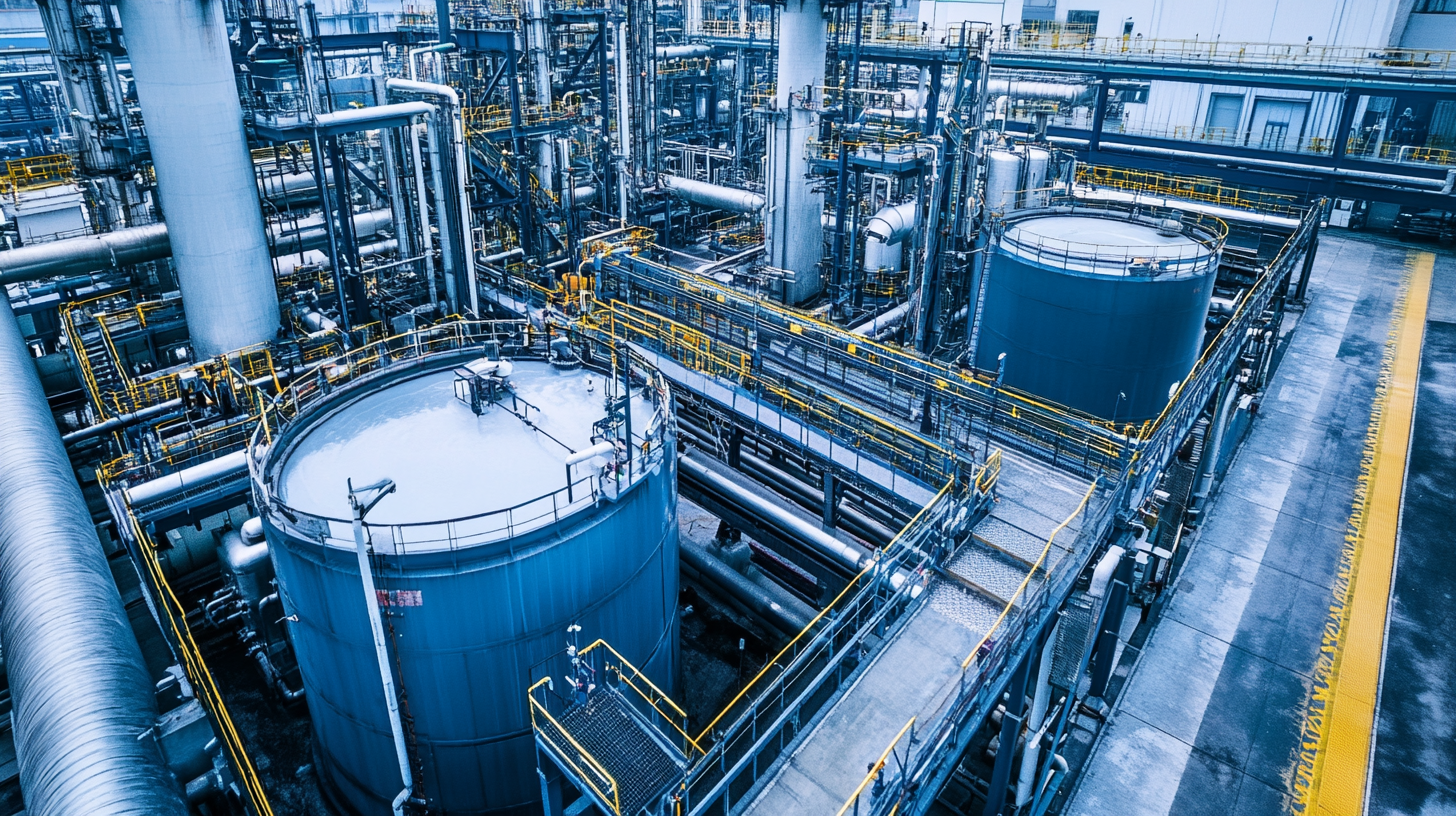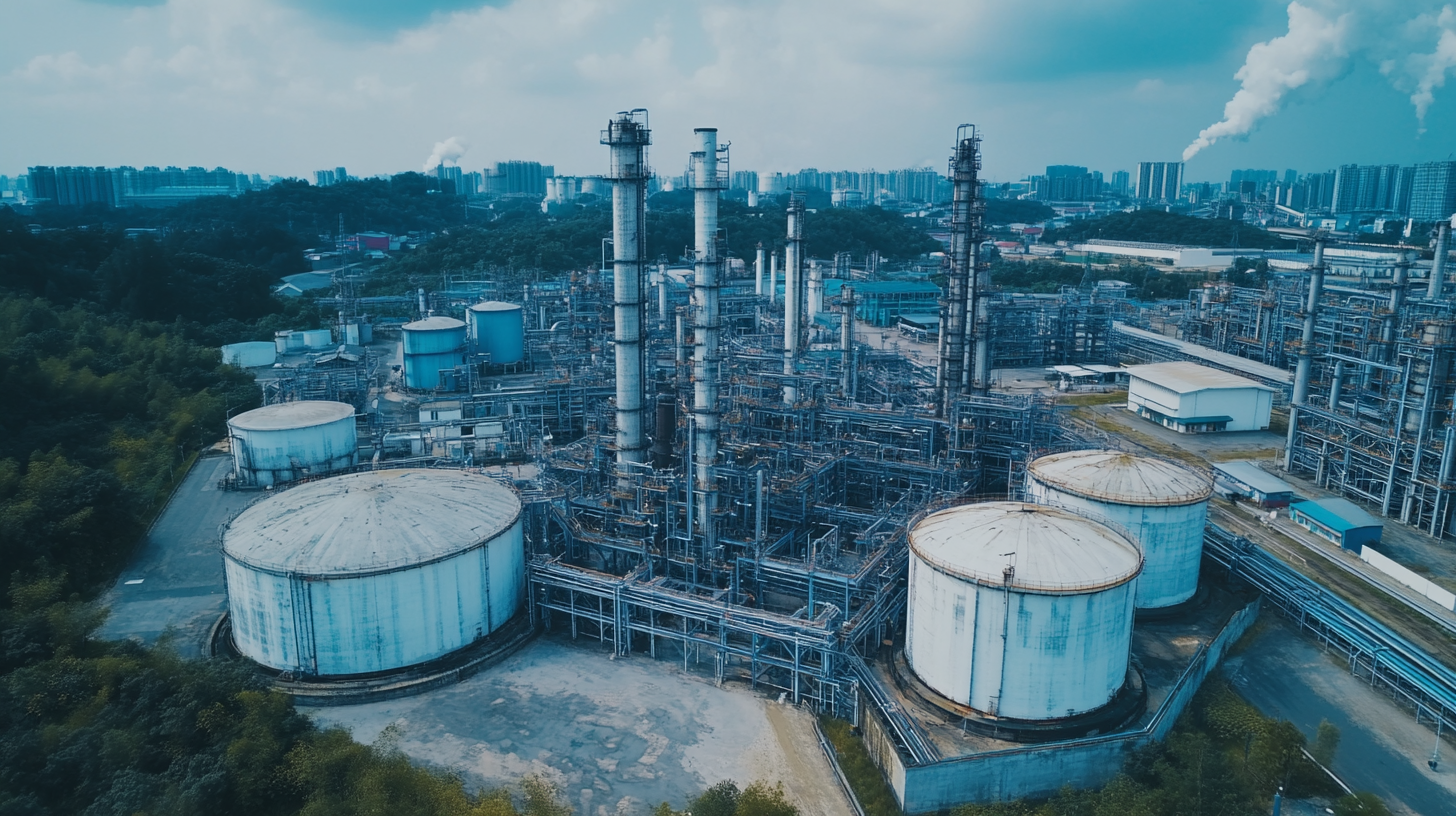
China's Resilient Growth in Peptide API Manufacturing Amidst US China Trade Tariff Challenges
In the wake of escalating US-China trade tensions, the peptide API manufacturing sector in China has demonstrated remarkable resilience and adaptability. According to a report by Grand View Research, the global peptide therapeutics market is projected to reach USD 50.9 billion by 2025, with Asia-Pacific, particularly China, anticipated to play a pivotal role in driving this growth. Despite the challenges posed by reciprocal tariffs, Chinese manufacturers have not only maintained their production capacities but have also leveraged technological advancements to enhance efficiency and reduce costs. Data from the China Pharmaceutical Industry Association indicates that the peptide API market in China is experiencing a compound annual growth rate (CAGR) of 15% from 2021 to 2026. This resilient growth amidst geopolitical uncertainties underscores China's commitment to becoming a global leader in peptide API manufacturing, positioning itself as a vital player in the international pharmaceutical landscape.

Challenges and Opportunities in Peptide API Manufacturing Amidst Trade Tariffs
As the global pharmaceutical landscape evolves, peptide API manufacturing in China is navigating a complex environment shaped by US-China trade tariffs. These tariffs, meant to bolster local production in the U.S., are inadvertently creating opportunities for Chinese manufacturers who are agile and capable of adapting to changing market demands. Despite the challenges posed by increased costs and regulatory scrutiny, China's peptide industry has shown remarkable resilience, with companies leveraging their strengths in advanced synthetic methods and scale of operations to meet global needs.
Meanwhile, the rising trend in pharmaceutical investments in the U.S., as seen with substantial commitments from major companies, highlights a strategic pivot in the industry. However, this shift may revive focus on contract API manufacturing partnerships, giving rise to more collaborative efforts. As pharmaceutical companies seek cost-effective alternatives amid tariffs, the demand for efficient and reliable peptide sourcing from China could increase, fostering a more integrated supply chain. The current landscape not only tests the resilience of China's manufacturing capabilities but also may redefine competitive advantages in the global peptide therapeutics market.

The Impact of US-China Tariffs on the Pharmaceutical Supply Chain
The ongoing trade tensions between the United States and China continue to disrupt the pharmaceutical supply chain. Recent tariffs imposed by the Trump administration have introduced significant challenges for Chinese drug manufacturers, impacting their profit margins and operational stability. Reports indicate that the 20% levies on goods imported from China could exacerbate existing prescription drug shortages in the U.S., as China is a critical supplier of both medical equipment and active pharmaceutical ingredients (APIs). Without exemptions for pharmaceuticals, experts warn that prices for U.S. patients are likely to soar, further straining an already struggling healthcare system.
As companies navigate these turbulent waters, it’s crucial to explore strategies that mitigate the impact of tariffs. **Tip 1:** Diversify supply chains by considering alternative sourcing options beyond China to reduce dependency and hedge against tariff impacts. **Tip 2:** Engage with lobbying groups to advocate for tariff exemptions on pharmaceuticals, as these exclusions can provide much-needed relief to both manufacturers and consumers. **Tip 3:** Innovate processes and adopt automation technologies to enhance efficiency and cost-effectiveness, allowing companies to absorb rising costs without passing them entirely onto consumers. These proactive measures will be essential for sustaining growth in an increasingly challenging economic environment.
China's Resilient Growth in Peptide API Manufacturing
Strategies for Chinese Manufacturers to Maintain Competitive Advantage
Chinese manufacturers in the peptide API sector have faced significant challenges due to US-China trade tariffs. However, their resilience and ability to adapt have enabled them to not only withstand these pressures but also thrive in a competitive global market. To maintain this competitive advantage, Chinese manufacturers are implementing several key strategies.
Firstly, investing in advanced technology and automation is crucial. By streamlining production processes and improving efficiency, manufacturers can reduce costs and enhance product quality. Embracing cutting-edge technologies such as AI and machine learning facilitates better predictability in supply chain management and optimizes resource allocation. Additionally, developing robust partnerships with local suppliers ensures access to high-quality raw materials while reducing dependency on foreign sources, further bolstering resilience against external shocks.
Secondly, focusing on innovation in product development is essential. Chinese manufacturers are increasingly prioritizing research and development to create novel peptides that cater to evolving pharmaceutical needs. By fostering a culture of innovation and collaboration with academic institutions, they can stay ahead of market trends and differentiate themselves from competitors. Furthermore, adhering to international quality standards and certifications can enhance their reputation and open doors to new markets, ensuring sustained growth despite the ongoing challenges posed by trade tariffs.
Innovation and Technology in Peptide API Production: A Key to Resilience
Innovation and technology are at the forefront of China's peptide API manufacturing, driving resilience amid ongoing challenges posed by US-China trade tariffs. The peptide manufacturing sector has embraced advanced technologies that enhance efficiency and quality, enabling companies to remain competitive in a fluctuating market. Automation in production processes, the use of artificial intelligence for quality control, and the implementation of cutting-edge techniques have played a pivotal role in optimizing operations. These innovations not only help in minimizing costs but also ensure consistent product quality, which is crucial for compliance with international standards.
Furthermore, research and development investments are shaping the future of peptide API production in China. By fostering collaborations between academia and industry, Chinese manufacturers are at the helm of novel discoveries that push the boundaries of peptide applications. This commitment to continuous improvement and technology integration allows them to pivot quickly in response to global market needs, thereby mitigating potential impacts from trade restrictions. Through strategic innovation, China's peptide API sector showcases its capacity to thrive, turning challenges into opportunities for growth and leadership in the global pharmaceutical landscape.
China's Peptide API Manufacturing: Market Share by Region
Future Outlook: Navigating Trade Relations and Growth in Peptide Manufacturing
Amidst the ongoing challenges brought about by US-China trade tariffs, China's peptide API manufacturing sector has demonstrated remarkable resilience and potential for growth. According to a report by the International Monetary Fund (IMF), while global economic growth expectations have been revised down to 2.8% from earlier projections of 3.3%, China is projected to be one of the biggest contributors to global growth over the next five years. This could pave the way for future innovations and advancements in peptide manufacturing, positioning China as a leader in this vital pharmaceutical arena.
The peptide API market is anticipated to witness significant expansion, with projections indicating a compound annual growth rate (CAGR) of approximately 7.5% over the next decade. This growth can be attributed to the increasing demand for peptide-based therapeutics, driven by rising incidences of chronic diseases and the growing emphasis on personalized medicine. As manufacturers navigate the complexities of trade relations, those in the peptide sector can leverage advanced manufacturing technologies and strategic partnerships to enhance their production capabilities and ensure a robust supply chain. The outlook remains promising, provided that companies adapt to the shifting economic landscape while pursuing innovation and sustainability in their practices.

